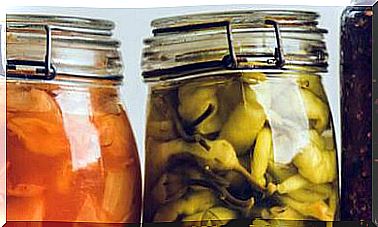Why Are Monocultures A Threat To Everyone?
Unlimited industrial monocultures have become a threat to the planet and to people. The journalists Nazaret Castro, Aurora Moreno and Laura Villadiego explain it in “The monocultures that conquered the world” (Ed. Akal).

The large agri-food companies on the planet promote monocultures without caring too much what happens to regional economies, small and medium-sized farmers or indigenous communities. The worst thing is that the fruits of these monocultures slip into our shopping cart and make us co-responsible.
Nazaret Castro, Aurora Moreno and Laura Villadiego explain in The monocultures that conquered the world (Ed. Akal) the specific cases of sugar cane, oil palm and transgenic soy in areas of Latin America, Africa and Asia.
These monocultures produce enormous economic benefits for food multinationals and a long list of damages:
- Land grabbing in a few hands.
- Pollution with pesticides, fertilizers and GMOs.
- Annihilation of biodiversity and ecosystems.
- Deforestation.
- Increase in greenhouse gas emissions.
- Displacement of populations.
Monocultures are not food, they are products.
For thousands of years agriculture has nourished humanity, but monocultures become ultra-processed products that are associated with the obesity epidemic and a series of diseases.
Palm oil
When you enter a supermarket you find a huge diversity of products. But one in two contains palm oil. If you close your eyes and imagine 20 million hectares (one hectare is equivalent to a football field) covered with oil palms, you will be seeing the reality behind the supermarket. The multinational Unilever buys 1.5 million tons of palm oil every year, which it sells in products under 400 different brands.
Sugar
The data for sugar are similar. In 2018, 192 million tons were produced, which represents an average consumption of 27 kg of sugar per year per person. It’s not just about the sugar added to the coffee. It is hidden in ultra-processed foods, from dumplings and soft drinks to cold cuts, to ketchup. We know the consequences on health (obesity, diabetes, cardiovascular diseases, inflammation …), but we are not aware that many plantations work in conditions similar to slavery, that the cane fields invade the jungle or that the factories emit toxic substances such as ammonia into the environment.
Despite the staggering numbers of “agriculture without farmers” that sustains monocultures, 70% of the food still comes from the peasant network, which still owns only 25% of the land. This peasant network is in decline, but we still have time to rescue it with our decisions: buying natural whole foods, locally sourced, if possible organic and produced by small farmers.
Palm and soy: environmental and health risks
Each monoculture has its own peculiar problem. In the case of the oil palm, the health effects of refined fat are combined with serious environmental consequences.
Of the monocultures of palm oil, The Economist magazine , which has nothing against the market economy, said that “it has become a symbol of the worst excesses in the world of agriculture.” Poverty, razed forest (including orangutan reserves) and health risks are the main side effects of this monoculture.
Soy combines the risks of transgenicity with its use as feed to produce meat or biofuel (both uses are unsustainable). The monoculture of transgenic soy has transformed the economies of Argentina, Brazil and Paraguay. From this plant livestock feed, food ingredients and biofuels are produced.
It occupies more than 100 million hectares and in 2050 it will be 140 million. With the extension of the crops, the environmental and human health risks associated with transgenics will multiply , as well as the economic and social problems.
And there are other monocultures, such as corn, wheat and rice, staples for a good part of humanity that are being left in the hands of a few companies.
We believe a lie
We are all subjected to a hegemony of values that can make us believe that these monocultures are the modern and efficient expression of agriculture, thus providing us with relatively cheap products. But this is a fallacy, because the negative consequences are hidden from us and we do not pay for them with money.









